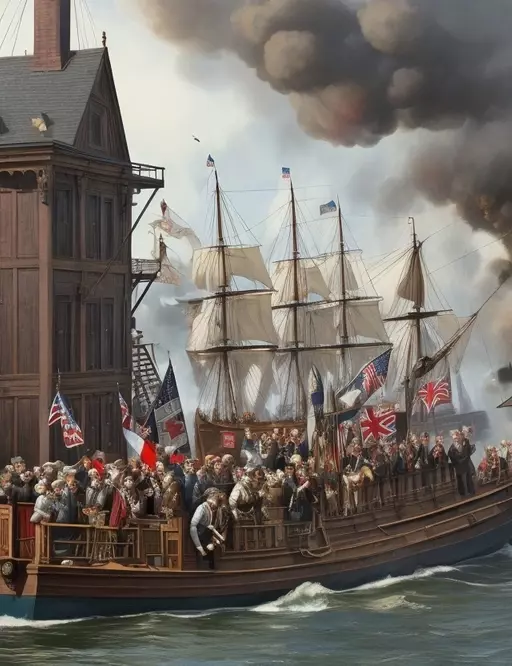The Boston Tea Party: Colonists Protest British Taxation and Monopoly
Historic Act of Defiance (1773-12-16)

The Boston Tea Party: Colonists Protest British Taxation and Monopoly
On December 16, 1773, a pivotal moment in American history unfolded with the occurrence of the Boston Tea Party. American colonists, frustrated by British taxation and the monopoly on tea, staged a historic act of defiance by throwing tea into Boston Harbor. This event marked a turning point in the lead-up to the American Revolution.
Motivations for Protest
The Boston Tea Party was a direct response to the Tea Act imposed by the British Parliament. This act granted the British East India Company a monopoly on tea sales in the American colonies and allowed them to sell surplus tea directly to the colonies at a reduced tax. American colonists viewed this as a violation of their rights and a continuation of unfair taxation without representation.
Act of Defiance
In an act of protest and defiance, a group of colonists, disguised as Mohawk Indians to conceal their identities, boarded three British ships—the Dartmouth, the Eleanor, and the Beaver—at Griffin's Wharf in Boston. They proceeded to throw 342 chests of tea into Boston Harbor, symbolizing their refusal to accept British-imposed taxes and economic oppression.
Significance in American History
The Boston Tea Party had far-reaching consequences and played a crucial role in the escalation of tensions between the American colonies and the British Crown. The event galvanized colonial opposition to British rule and contributed to the formation of a united front among the colonies, setting the stage for the American Revolution.
Impact on Revolution
As news of the Boston Tea Party spread, it further fueled anti-British sentiment and strengthened the resolve of the American colonists to resist perceived injustices. The incident led to retaliatory measures by the British government, including the Intolerable Acts, which, in turn, intensified colonial resistance and hastened the path to revolution.
Legacy of Defiance
The Boston Tea Party remains a symbol of colonial resistance and the determination of the American people to stand up against perceived tyranny. The legacy of this historic act of defiance is ingrained in the fabric of American history, representing the spirit of rebellion and the quest for freedom that would ultimately lead to the establishment of the United States of America.



